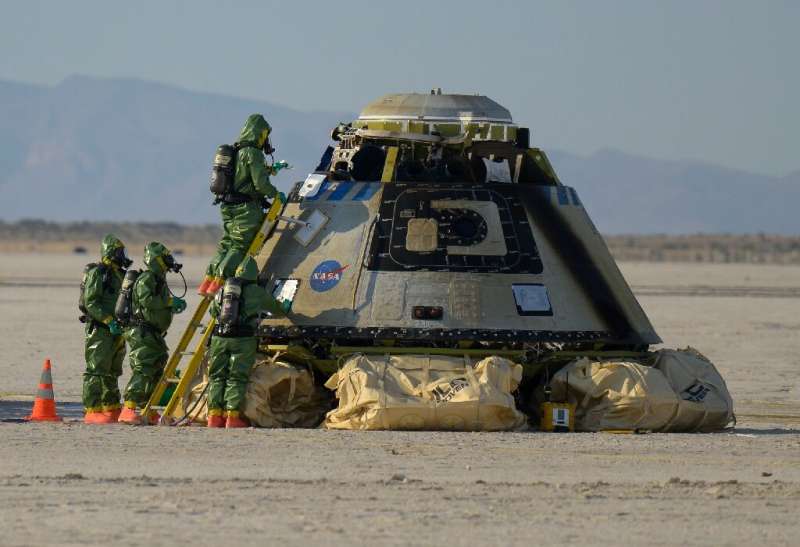This article has been reviewed according to Science X's editorial process and policies. Editors have highlighted the following attributes while ensuring the content's credibility:
fact-checked
reputable news agency
proofread
NASA, Boeing aiming for July launch of Starliner space capsule

The first crewed flight of Boeing's Starliner space capsule to the International Space Station (ISS) will take place in July, Boeing and NASA officials said Wednesday.
The CST-100 Starliner mission, which had previously been planned for April, will take place no earlier than July 21, the officials said.
"We've deliberated and decided that the best launch attempt is no earlier than July 21 for CFT," the crew flight test, Steve Stich, the manager of NASA's Commercial Crew Program, told reporters.
"We feel pretty confident with that date," added Mark Nappi, the Starliner program manager at Boeing.
Stich said more time was needed to certify the parachute system designed to bring the astronauts and the spacecraft safely back to Earth, and a ground test of the parachutes will be conducted in May.
The Starliner will carry two NASA astronauts, Barry Wilmore and Sunita Williams to the ISS, where they are expected to stay for at least eight days.
The spacecraft is to launch into space on an Atlas V rocket made by United Launch Alliance from Cape Canaveral in Florida.
If the mission is successful, the Boeing capsule will finally be certified and begin operational flights, at a date yet to be determined.
Boeing had hoped to make its first manned flight of the CST-100 Starliner in 2022 but has experienced a number of delays.
The company finally succeeded in May 2022 in reaching the ISS for the first time—without a crew on board.
NASA awarded fixed-price contracts of $4.2 billion to Boeing and $2.6 billion to SpaceX in 2014, shortly after the end of the Space Shuttle program, during a time when the United States was left reliant on Russian Soyuz rockets for rides to the ISS.
NASA is looking to certify Starliner as a second "taxi" service for its astronauts to the space station—a role that Elon Musk's SpaceX has provided since succeeding in a test mission of its Dragon capsule in 2020.
© 2023 AFP



















